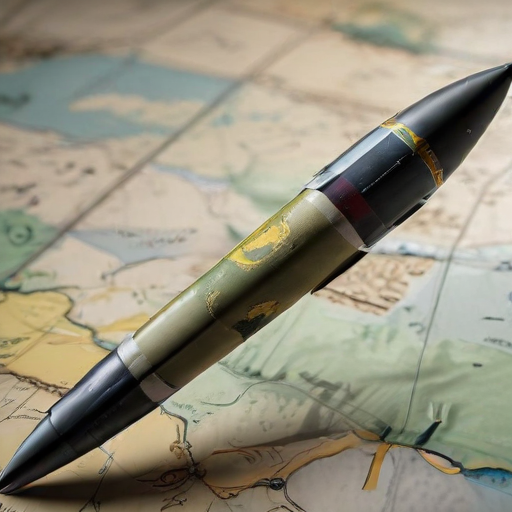In a striking escalation of tensions in the ongoing conflict between Russia and Ukraine, President Vladimir Putin announced a missile strike using a new intermediate-range ballistic missile. This action was described as a response to Ukraine’s recent use of longer-range weapons provided by the U.S. and UK, which targeted Russian territory. In a televised address, Putin indicated that this missile test was a demonstration of Russia’s capabilities and asserted the country’s right to strike back at nations supplying arms to Ukraine.
The U.S. Department of Defense confirmed that the missile in question is an experimental intermediate-range type, based on existing intercontinental ballistic missile designs. This capability raised concerns among U.S. officials, highlighting the missile’s capacity to carry both conventional and nuclear warheads. Notably, Russia informed U.S. officials of the impending attack through nuclear risk reduction channels, emphasizing the seriousness of the situation.
Putin’s address contained a blunt warning to Western nations, stating that Russia has the authority to target military installations in those countries that enable attacks on Russian infrastructure. Analysts suggested that by deploying such a significant weapon, Moscow aimed to intimidate Ukraine and its allies, sending a clear signal regarding its military intentions.
Despite these intimidating maneuvers, U.S. officials expressed confidence that Russia’s actions would not deter Ukraine or the support it receives. They reassured allies that military assistance, including air defense systems, would continue throughout President Biden’s term, emphasizing that Russia’s attempts to leverage this new capability would not serve as a turning point in the conflict.
As the conflict continues to evolve, particularly with Ukrainian forces now utilizing enhanced long-range weaponry, Russia faces challenges in maintaining its narrative. Previous declarations from Putin regarding nuclear thresholds have drawn skepticism from Western officials, who interpret them as empty threats rather than imminent realities.
Furthermore, the likelihood of Russia opting for nuclear weapons remains low, especially as its military advances in the conflict. Over recent months, Russian forces have achieved territorial gains, fueled in part by external support, such as troops from North Korea. While the situation remains tense, experts argue that deploying nuclear weapons could further isolate Russia internationally, complicating its already precarious diplomatic standing.
There is hope in the resilience of Ukraine and the unwavering support from Western allies, suggesting that collective efforts may eventually lead to stability in the region. The evolving dynamics of international relations, coupled with the strategic handling of military capabilities, could pave the way for a more favorable outcome for the involved parties.
In summary, Putin’s announcement of the missile strike serves as a formidable reminder of the conflict’s complexities, but the overall trajectory indicates that both Ukraine and its allies remain steadfast in their opposition to aggression, enhancing the chances for constructive resolution in the future.
